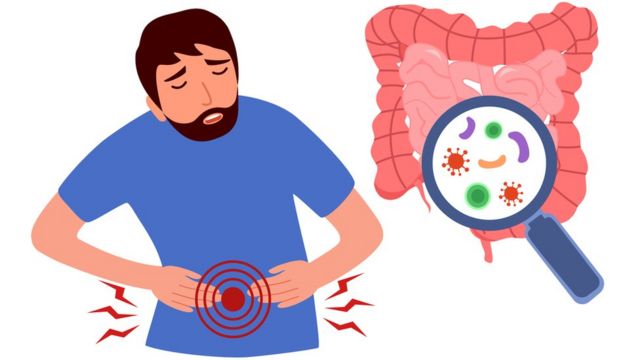100 Healthy Habits That Can Save our Life, our Money, and our Planet
Making healthy lifestyle changes can affect more than just your longevity. Many changes, even small ones, can have a big impact on your wallet and the world around you. With so much to gain, why wait to make some key changes in your life and health care that can have you feeling better, richer and more environmentally friendly. The following are just a few ideas to help you get started on developing some beneficial healthy habits.
General
These habits are important to keep your overall health good, and have some other great benefits as well.
- Get enough sleep. Not getting enough sleep can shorten your life expectancy, make you cranky, make it harder to concentrate and even cause you to put on weight, so make sure to get enough every night to help you wake up feeling refreshed.
- Keep your teeth squeaky clean. Many people may not realize what a role oral health can play in life expectancy. Scientists estimate that regular brushing and flossing can add up to six years to your life, keeping you healthier and saving you money on dental and health care.
- Wear sunscreen. Protecting your skin won’t just prevent potentially fatal conditions like cancer but can also help keep you looking younger longer.
- Stop smoking. Smoking not only hurts your health but can wreck havoc on your wallet as well, not to mention all the waste it creates through cigarette butts. Cut out the smoking and you’ll help yourself in a myriad of ways.
- Stay a healthy weight. There is no magic number for a healthy weight, and only your health care provider can tell you what’s right for you, but working to keep yourself slim and trim can prevent a wide range of potentially costly healthy problems.
- Get regular medical exams. Paying a little bit more up front to get some routine tests and professional medical advice done can pay off big time in the long run, especially if you catch a problem in the early stages.
- Put yourself first. With busy lives it can be hard to make time to spend just on yourself, but staying healthy inside and out requires a little me-time now and again.
- Keep it in moderation. Whether you love to indulge in cocktails or spending on expensive gadgets, moderation is key. Give yourself the occasional indulgence but make sure it doesn’t get out of hand. You’ll get better health out of it and a little extra money in your wallet.
- Don’t ignore symptoms. Unexplained weight loss, shortness of breath, severe headaches and fevers are just some of the symptoms that you should never ignore. Protect your health and head to your caregiver if you’re feeling less than normal.
- Go outside. Even in the dead of winter, getting outside for a little bit each day can make you feel better. Take a walk, enjoy the fresh air, connect with nature and enjoy the simple (and free) pleasure of getting outside.
- Take vitamins. Vitamins can be pricey, but they are a small investment in your health, as many can help prevent problems like osteoporosis that can affect you as you age.
- Encourage healthy lifestyles in others. Getting healthy can be great for you but what about those who are close to you? Encourage your spouse, family members and children to get out there and get moving along with you. It’ll not only help them but will also encourage you to stay with your healthy habits as well.
- Find a passion. Taking the time to figure out where your real passions lie in life, whether they’re in playing a sport, caring for your family, following a career or making the world a better place, will help keep you healthy and active long into old age.
- Get physical. Whether you decide to run five miles every morning or enjoy a romp under the sheets with your spouse, getting your body moving is one of the best ways to stay healthy and one that benefits your mental and physical well-being.
Mental
Make sure you’re taking care of your mental health as well by following these healthy habits.
- Take time to relax. Stress can take a big toll on the health of anyone, both mentally and physically. Make sure you’re taking time out of your life to relax and unwind whether it’s by taking a long walk or enjoying a movie night with a friend or partner.
- Laugh about it. Sometimes unexpected things happen in life. Learning to laugh about them, and not take everything as a serious setback can be a big part of staying healthy and keeping stress from dragging you down.
- Get help. You don’t have to go through tough times alone. If you’re feeling depressed reach out to friends and loved ones. If you don’t feel comfortable talking to them talk to a counselor or psychiatric professional in your area.
- Find new interests. Keep your brain in shape by seeking out new interests and knowledge. You may even find a new passion or a new group of friends.
- Get involved. Getting involved in your community is a great way to connect emotionally, help the environment and get healthy by getting active.
- Build your self esteem. When you’re healthy and in shape you feel good about yourself. Find ways in your every day life to build up self worth whether its through enjoying a hobby, playing a sport or any other activity that you love.
- Embrace the spiritual. Being spiritual doesn’t have to mean being part of an organized religion. For some, it can simply mean connecting with a deeper, more meaningful part of life. why is this important? Taking quiet time to meditate or pray can help you relax, focus and find out what’s really important in your life, leading to a happier, healthier you.
- Work out your brain. Just because your brain doesn’t have any muscles doesn’t mean you shouldn’t be working it out. Ensuring that your brain stays healthy will help you stay active, happy and sharp into old age.
- Look on the bright side. Studies have shown that those with an optimistic outlook on life actually live longer, healthier lives so try to see the silver lining.
- Find friends with common interests. Having a close group of friends who share your values is essential to maintaining mental health and will likely ensure you’re happier no matter your age.
- Spend time with those you love. Making connections with others is key to staying balanced and happy. Spending time with a loved one promotes better health, shared interests and as an added bonus doesn’t have to cost you a thing.
At Work
Feel like your job is draining your health? You may want to make some adjustments with these suggestions.
- Find an alternate mode of transport. Whether you bike to work or take a ride with some coworkers, you’ll be helping the environment and getting the benefits of working out or socializing with others.
- Bring lunch. Bringing your lunch rather than going out ensures that you’ll know just what is going into every meal and will save you big bucks over the course of the year.
- Allow yourself breaks. Working the whole day through without ever getting away from your desk may be great for your boss’ bottom line but it isn’t doing your health any favors. Make sure to take a few short breaks throughout the day to relax, stretch your legs and take your mind off stressful matters.
- Take the stairs. If you work in a building where this is feasible, taking the stairs can be a great way to burn some extra calories throughout the work week.
- Reduce your stress. Jobs can often be the most stressful part of a person’s life. Do your best to reduce the stress of your job by not taking on more than you can handle and not letting work dominate your life.
- Connect with coworkers. Most people are happier and less stressed in a workplace where they feel connected to their coworkers. So make an effort to get to know the others working around you.
- Get ergonomic. Don’t let your desk be a painful place to be. Instead, work on improving the ergonomics of your working environment a stretching out when you can.
- Bring your own. From snacks to coffee mugs, bringing things from home will enable you to be healthier and save money at work. Plus you won’t be creating extra waste with disposable cups.
- Take your vacation. You may not think getting away from work will help you get more done but it just might. Studies have shown that taking a break from work, even if you don’t go anywhere, can help you reduce stress and be more productive when you’re back on the job.
- Keep clean. Workplaces are full of germs, so keeping you hands washed and your desk clean can help prevent picking up any workplace illnesses that might be floating around.
- Get up, get moving. Sitting in one place all day isn’t good for your body, and likely isn’t doing much for your mind either. Make sure to take time to get up and walk around, even if it’s just to go to the water fountain.
- Don’t take on too much. It’s easy to let work pile up and to take on more than is really possible for you to finish. Learn how to say no and when enough is enough to fight stress at work.
- Stay away from sick coworkers. Colds can move around the office with lightening speed. If you know a coworker is sick, try avoid contact with them as much as possible and keep anti-bacterial agents on hand to help prevent getting sick.
- Do what you love. There is no reason a job should have to be a horrible trial everyday. If you do what you’re passionate about it can be a labor of love. Not in a job you enjoy now? Start doing small things to make your dream happen.
- Make a change. If you’re unhappy at your job, why linger, causing undo stress and unhappiness? Make a change to something else even if it’s a scary leap.
Around the House
Here are a few simple things you can do around the house to boost your health and that of anyone living with you.
- Make your own cleaning supplies. Store-bought cleaning supplies can be full of all kinds of chemicals that can be harmful to you, your family and household pets. It’s simple to make your own cleaning supplies and you can find numerous recipes online and in books.
- Cook at home instead of going out. While the occasional meal out won’t hurt you, eating at home helps you to know just what is going into every dish and will help you save money if times are tight.
- Find a great hobby. Having a hobby can help keep your mind in shape and help get you up off the couch and doing something productive.
- Turn off the TV. Many people spend several hours a day watching TV, being completely sedentary when they could be active. Turn off the TV for a few hours and take a walk, talk to a spouse or loved ones or read a book.
- Plant a garden. Planting a garden will get you moving physically and provide you with fresh veggies and herbs to eat, making it an all-around healthy endeavor.
- Pick up the pace of chores. Want to get a little bit extra out of doing those chores? Pick up the pace and get your heart rate up as you move around the house. You can even make a game out of how long it will take you to sweep or dust a room.
- Hang laundry on the line. One other way to make housework more active is by hanging laundry out to dry rather than throwing it in the dryer. You’ll not only get to do a bit of exercise but you’ll save money and pitch in to be a little greener.
- Shorten your showers. Taking shorter showers won’t just help cut your water bills and conserve water, it will also help keep your skin from drying out and help you look younger and healthier.
- Have first aid supplies. Make sure you keep a range of first aid and emergency supplies around your house. Hopefully you’ll never need them, but if you do, you’ll have what you need on hand to ensure you emerge healthier from any kind of household accident.
- Clean out the clutter. Having clutter around the house can stress you out, forcing you to rummage through things trying to locate items or tripping over things that don’t have a home. Cleaning out your garage, basement and closets can rid you of much of this clutter and may even make you some money if you have a garage sale.
- Start a compost pile. If you have the room in your backyard, start a compost pile. You can use it to fertilize veggies and other edible plants and you’ll keep some waste from going to a landfill.
- Get organized. Getting organized can save you time and money as well as preventing waste and generally reducing your stress level.
- Eat together. Eating meals with someone else can help you to slow down, enjoy what you’re eating and spend some time socializing and connecting with others. All things that are beneficial to your health.
- Properly store and dispose of materials. Most of us wouldn’t leave a can of gasoline stored in our bedrooms, but many other potentially harmful materials are often stored in places that can be just as dangerous. Learn how to properly store and dispose of the harmful materials around your home and think about replacing them with more eco-friendly options.
- Love what you have. The reality is that most of us don’t need all the things we already own and certainly would do just fine without all the things we want. Try to spend more time appreciating what you do have and less time wanting what you don’t.
Exercise and Fitness
One of the key elements to staying healthy is to work out and get fit. Here are some great ways to do it while having fun, saving money and even getting greener.
- Take a walk. Getting out and walking, even if it’s just around the block, is a great way to get some exercise and see what’s going on in your area.
- Ride a bike. Whether you’re trying to get somewhere fast or just take the scenic route, biking is an earth-friendly way to get fit and feel good.
- Play a sport. Many sports require little equipment and all are a great way to get in shape and have fun while doing so. Even better, you’ll get to make some great social connections and feel good about your mental and physical health.
- Bring the kids. Don’t make fitness a lonely endeavor. Bring your children or spouse along and get the whole family fit at once.
- Work out while waiting. Bored during a commercial break? Try doing some yoga moves or stretching out. The few minutes you spend doing this will add up over a couple hours watching television.
- Play with pets. Your pet needs attention and you need exercise so why not actively engage in both by playing with your pet?
- Wear protective gear. If you do play a sport or even work out vigorously, make sure you’re wearing the right kind of equipment to protect you from injury.
- Explore your neighborhood. On foot, roller blade, bikes or at a jog, your neighborhood is full of things just waiting to be discovered.
- Go off the beaten track. Nature trails can be a great way to get exercise and remain entertained all afternoon long as you see wildlife and great scenery.
- Use your own body. You don’t have to spend a fortune on a gym membership to get in shape. You can use your own body to do many workouts and still reap the benefits.
- Volunteer. From organizing recycling to planting trees, there are many volunteering opportunities that will fill your heart, get you moving and help the environment.
- Make it social. Workouts don’t have to be alone if you don’t want them to be, and often they’re more productive when you bring others along.
- Get in a routine. Making exercise part of your daily life is key to making a healthy lifestyle change. Get in the habit of working out and you’ll be able to stop fighting the urge to just veg out.
- Try new things. There are a million different ways to get active and chances are good there are many you haven’t tried that you might love. Be open to trying out new ways to get fit and you might just discover a new hobby.
Shopping and Finances
Money can have a big impact on your personal health, whether you realize it or not. Here are some suggestions for spending and saving the healthy way.
- Bring your own bags. Reusable bags are great for the environment and may encourage you to buy less if you only have a few bags to use.
- Avoid heavily packaged items. There’s no need to send mounds of waste to a landfill for a simple item. Try to avoid purchasing items that are encased in more plastic than they’re made of if you can.
- Stay away from processed foods. Processed foods may be appealing because of their convenience and ready availability, but in the end you’ll be better off cooking from fresh items.
- Shop smart. Just because something is on sale doesn’t mean you need to buy it. Don’t be fooled by sales and bargains that might encourage you to buy more and ultimately waste more.
- Buy organic. While you don’t have to buy everything organic, some foods are important to get organic as you can see here. You’ll be taking in fewer chemicals and helping out the environment at the same time.
- Check labels. Many foods appear to be healthier than they really are and many products aren’t quite as advertised. Read the labels of foods you buy and carefully research any other purchases you make to ensure they are healthy, the best value and not harmful to the environment.
- Plan your meals. Planning meals ahead of time will help you eat right and not buy more than you need at the store, preventing waste and saving money.
- Buy local. Checking out a local farmer’s market can be a great place to find locally grown foods. You can get great deals on these items and you’ll get to each fresher, healthier foods that haven’t taken numerous resources to transport.
- Park further away. On your next shopping expedition, try parking further away. You’ll have your choice of parking spots and get a little bit of exercise on the way to the store.
- Live within your means. Not having enough money can put a ton of stress on anyone, often at the cost of health. Keep you spending within your means to give you one less thing to worry about.
- Keep your bills paid. While unexpected bills can catch you by surprise, keeping your regular month-to-month bills paid can be a great way to reduce your stress. If you can’t seem to remember, set up automatic payments online.
- Buy less. By simply cutting back on spending you’ll be doing your wallet and the planet a favor.
- Stop buying bottled water. This doesn’t mean that you should stop drinking water, but just stop buying pre-bottled water and instead fill up a reusable bottle that will stay out of a landfill for a long time to come.
- Get only what you need. With so much available to you at the grocery store, it can be easy to buy more than necessary. Bringing a list or planning ahead can help keep you from spending too much and getting food that might go to waste or cause you to overeat.
- Look for used. Not everything you need has to come to you brand spanking new. Try shopping on ebay, in thrift stores and other secondhand shops so you can save money and save old items from becoming waste.
- Be realistic. Save yourself a one way ticket to stress by having realistic expectations about what you want. If you’re never satisfied with the things you have or will likely be able to afford you’ll always be stressed, unhappy and ultimately unhealthy.
Diet and Nutrition
These habits can help you get on the right track to eating a healthier more balanced diet.
- Eat lower on the food chain. Not only are grains and vegetables better for the environment they’re also cheaper and better for your diet. Make meats the side dish at your meal instead of the main focus.
- Eat breakfast. Eating breakfast can improve your concentration, help you maintain your weight, and get your daily requirement of vitamins and minerals. So enjoy healthy, whole grain breakfast to start your day.
- Have some fish. Fish is full of omega-3 fatty acids, high in protein, and low in fat leading to a much healthier way to get your fix of meat.
- Drink plenty of water. Getting enough water can help you do everything from maintain concentration and digest food properly so make sure to get enough to keep your health afloat by bringing a water bottle with you everywhere you go.
- Switch to tea. Even if you do love coffee, drinking tea has some definite benefits health wise, helping you fight a range of illnesses. Tea may also be a cheaper alternative to coffee for those who need a caffeine fix.
- Practice portion control. Most people eat far bigger portions than they really should. Scale back on your portions and you’ll stay healthier and save money.
- Have a glass of wine. Drinking red wine in moderation has been shown to have some great heart healthy benefits so indulge in a glass with your dinner.
- Stop dieting. As most people can tell you, diets don’t work. Only long term changes to diet and lifestyle can ensure long-term weight loss and health. So make changes that you can stick to, rather than those that are designed to be quick fixes.
- Eat smaller, more frequent meals. For some people, eating smaller meals throughout the day can help avoid the ravenous hunger than can result from going too long between meals. Give it a try with several healthy meals or snacks throughout the day for an easy way to fight hunger and overeating.
- Have fresh foods. The vast majority of the time, fresher foods have more nutrients and are better for you than those that are processed or frozen. So eat as many fresh fruits and veggies as you can to reap the nutritional benefits. Fresh foods don’t have to cost you a pretty penny either, check out local farmer’s markets for deals.
- Embrace variety. Eating a variety of foods is essential to having a well-balanced diet. Check out the daily recommendations provided by the government or work on taking in the whole spectrum of options out there on your own terms.
- Limit junk foods. It goes without saying that most of us would be healthier if we cut back on our junk food intake. Not only are these foods high in fat and calories but they’re full of chemicals and often heavily packaged which isn’t friendly to the environment either.
- Slow down. Eating more slowly may help you actually eat less in the long run as you’ll give your stomach time to register that it’s full keeping you from overeating and giving you some leftovers to have tomorrow.
- Enjoy your meals. Part of slowing down is learning to savor your meals. Don’t just eat to get full, make eating an enjoyable experience for your mind and body.
- Make it easy to eat right. If you stock your house with fatty snacks and high calorie drinks you’re inevitably going to indulge, maybe more than you’d like. Instead, keep healthy snacks around the house, at your desk or anywhere you might be tempted.





































